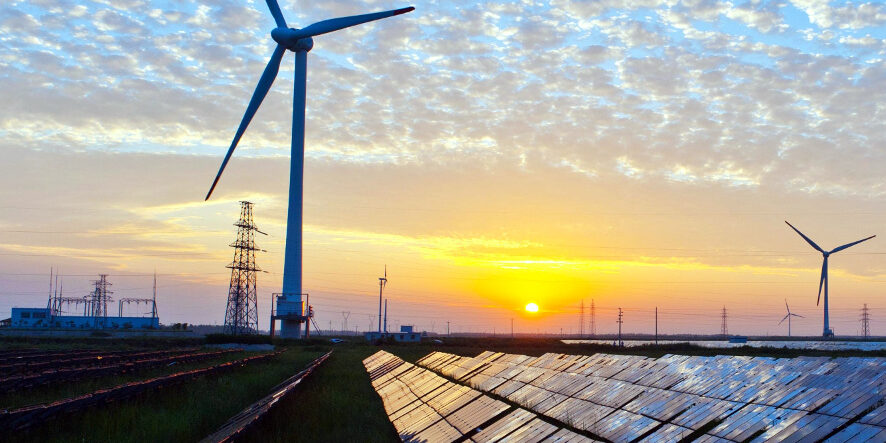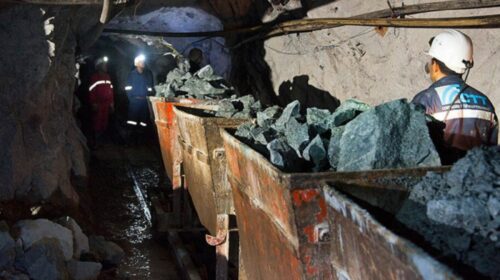“No one can stop” the progress of renewables, insists the head of IRENA
“No one can stop this progress”: renewable energies will continue to grow, ignoring the difficulties, but must go faster if the world is to meet its climate objectives, the director of the International Energy Agency told AFP. renewable energies.
The world has been caught in an energy crisis since the invasion of Ukraine by Russia and certain countries, in Europe in particular, are doing everything to ensure their supply of oil and especially gas.
“In the short term, this will have an impact”, recognizes Francesco La Camera, the director general of IRENA, in an interview with AFP at COP27 on the climate in Egypt.
“But in the medium and long term, there is no other way than to accelerate decarbonisation. Because ultimately renewables are not only good for the climate, jobs, GDP, but are a real way to ensure energy independence,” he said.
NATO Secretary General Jens Stoltenberg also highlighted this new strategic aspect on Tuesday, stressing that the transition to renewables is “good for our security”.
For Francesco La Camera, the United States is also in no danger of going back in its choice of clean energies, recently reinforced by the vast investment plan of President Joe Biden, who has just faced the mid-term elections. .
“During the previous administration (Trump), coal-fired power plants were already closing in the United States,” noted the Italian.
“The market is the engine. The market is already saying clearly that we are moving towards a system based on renewables and complemented by hydrogen, mainly green. No one can stop this progress,” he predicted.
“The question is not where we are going but how fast and what scale,” he adds, however.
IRENA calculated in a report published for COP27 that the energy transition was not on track to meet the Paris Agreement goals of keeping global warming well below +2°C, if possible at +1.5°C compared to the pre-industrial era.
“The figures say that we must double the ambition between now and 2030”, underlines Mr. La Camera.
Countries around the world are indeed targeting 5.4 terawatts (TW) of installed renewable electricity capacity by this timeframe, which represents only half of the 10.8 TW needed to meet climate commitments.
– “Phenomenal potential” – Africa, where the COP is being held this year, is particularly behind in relation to what it could achieve, particularly with its access to the sun.
Investment in renewables there was dragging to an 11-year low in 2021, according to a report by BloombergNEF (BNEF). The continent captured only 0.6% of global investments in the sector.
“Africa has phenomenal potential. They can produce 1,000 times the electricity and energy they need. This continent is an incredible powerhouse,” enthused the head of IRENA.
“But we need to review the way cooperation works. Africa cannot develop, move towards a clean energy system, without the right physical and legal infrastructure,” he adds.
He also warns against the temptation to rely on new fossil energy projects to develop, a dream cherished by several countries such as Senegal or the Democratic Republic of Congo.
“It’s in the interest of the continent to jump on the new train” rather than “stay stuck in old technologies”, pleads Mr. La Camera.
According to him, Africa could thus benefit from millions of new jobs and an acceleration of its growth.
“But this can only be done if developed countries are ready to facilitate, to support, to work with Africans to make this possible,” he concludes.
31 total views , 1 views today





